Being accused of domestic violence can have life-changing repercussions.
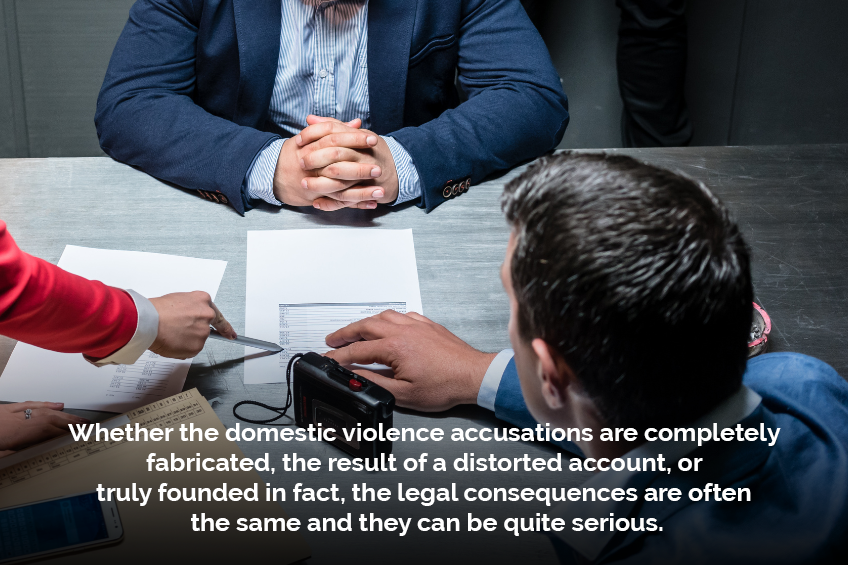
Whether the domestic violence accusations are completely fabricated, the result of a distorted account, or truly founded in fact, the legal consequences are often the same – and they can be quite serious.
You don’t even need to have done anything wrong to suffer the worst penalties under Georgia law.
And the stigma that comes with these accusations leads many of those falsely accused to feel utterly helpless and ashamed.
There are two very important things you need to know if you find yourself in this position:
- You have the right to vigorously defend yourself against these serious charges.
- You need an experienced Georgia domestic violence attorneyon your side to build your defense and protect your rights.
Don’t let embarrassment or shock at your situation keep you from taking the necessary steps to protect yourself if you are accused of domestic violence in Georgia.
And don’t wait until you are charged to get an attorney, either—get the best domestic violence defender you can, just as soon as you are accused of wrongdoing.
What Is Considered Domestic Violence or Family Violence in Georgia?
Georgia family violence laws cover acts of spousal abuse, child abuse, intimate partner violence and more.
Under Georgia code § 19-13-1, the term “family violence” means the occurrence of one or more of the following acts between past or present spouses, persons who are parents of the same child, parents and children, stepparents and stepchildren, foster parents and foster children, or other persons living or formerly living in the same household:
- Any felony; or
- Commission of offenses of battery, simple battery, simple assault, assault, stalking, criminal damage to property, unlawful restraint, or criminal trespass.
It is important to note that in Georgia, domestic violence is not limited to physical violence or physical abuse alone.
Other types of domestic abuse, including emotional abuse, financial abuse and sexual abuse can result in family violence charges, too.
Under Georgia law, domestic violence includes a range of abusive behaviors. These include:
- Assault
- Beating and molesting
- Committing rape/sexual assault
- Custodial interference
- Harassing by phone or by emails
- Removal of children from home without another parent’s permission
- Stalking
- Threatening to do bodily harm or cause of death
- Trespassing either in the home or a person’s workplace
- Verbal abuse or intimidation
Victims of domestic violence can include current and former household members to whom the accused has no other connection, and they can include those outside the household, as well.
They need not necessarily be familial or legal relations, either – the law covers acts perpetrated against married and unmarried partners, current or ex-boyfriends or girlfriends, same-sex partners, those you are related to indirectly by marriage and more.
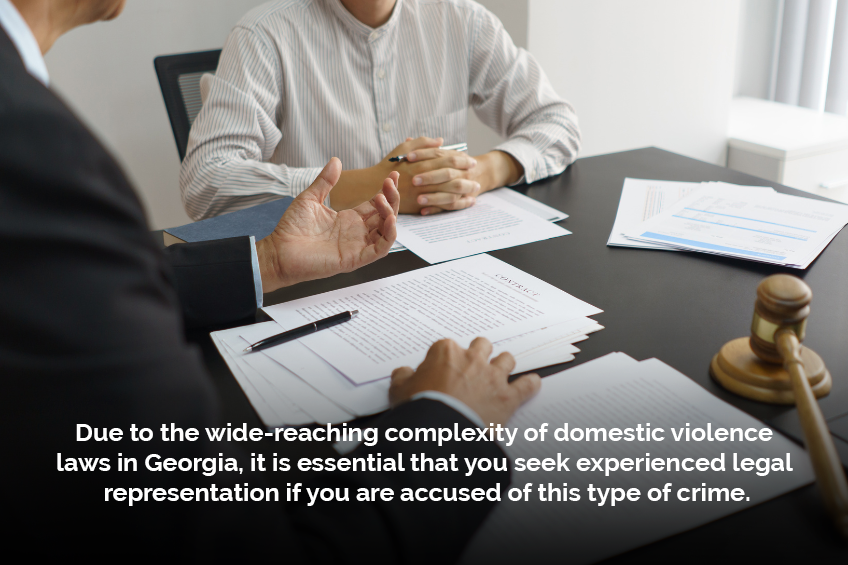
Due to the wide-reaching complexity of domestic violence laws in Georgia, it is essential that you seek experienced legal representation if you are accused of this type of crime.
Is Domestic Violence a Form of Assault or Battery?
Domestic violence can take the form of either assault or battery.
Assault refers to the intentional act of causing apprehension or fear of harmful or offensive contact.
In the context of domestic violence, this can include making threats, stalking, harassment or otherwise instilling fear.
Domestic assault also includes attempting to cause physical harm to a person.
Battery, on the other hand, involves the actual harmful or offensive physical contact, such as hitting, slapping, or pushing.
Domestic battery is what people usually think of when they hear the term “domestic violence”, but it is certainly not the only form, and all forms of family violence charges can have serious and far-reaching consequences.
Domestic violence charges can range from misdemeanor to felony charges, depending on the seriousness of the actions and the extent of harm.
Domestic Violence and Protective Orders
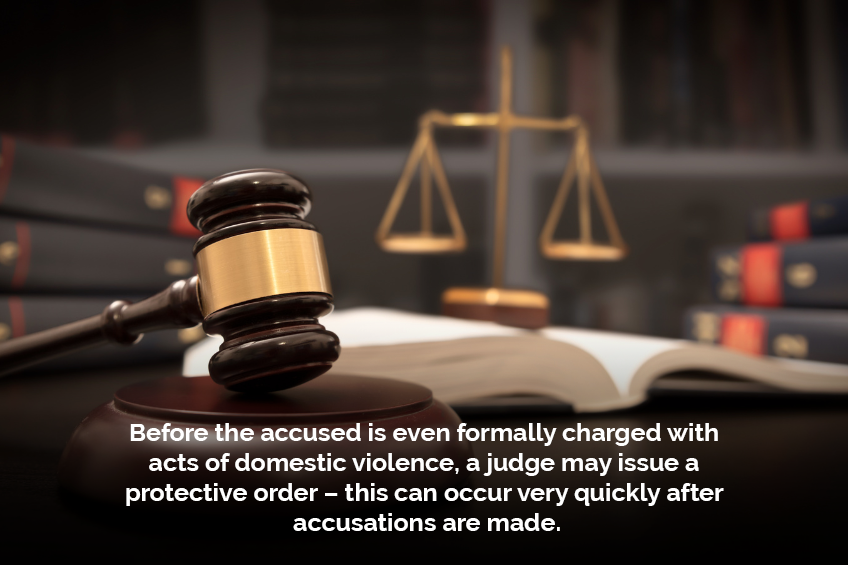
Before the accused is even formally charged with acts of domestic violence, a judge may issue a protective order – this can occur very quickly after accusations are made.
These court-ordered measures may prohibit the accused from contacting or approaching the accuser and from accessing places like their home, their workplace, and even their children’s school.
Temporary protective orders can sometimes also prohibit contact with children, even in cases where child abuse is not alleged.
In addition, what are known as final family violence protective orders can be issued after a conviction, and these are usually permanently binding.
These permanent protective orders may include further restrictions on family contact, mandatory counseling or anger management programs, limits on access to or surrender of shared personal property, and the awarding of costs or legal fees.
They can also result in the permanent loss of child custody and/or visitation rights.
What Are the Domestic Battery Penalties in Georgia?
Domestic violence is a serious offense in Georgia, and those convicted of domestic battery can face severe penalties.
The penalties for domestic battery include jail time, fines, probation, community service, mandatory anger management programs, and protective orders.
The severity of the punishment depends on the specifics of the case, including the extent of the harm caused and the defendant’s prior criminal record.
Jail time can range from a few months to several years, depending on the severity of the offense.
Fines can reach into several thousands of dollars, and the accused may face considerable loss of income in addition to legal defense fees.
Additionally, individuals convicted of domestic battery may be ordered to complete probation, where they must adhere to certain conditions and restrictions or face serious penalties, including incarceration.
Domestic Battery Suspects Have Fewer Rights than Other Criminal Suspects
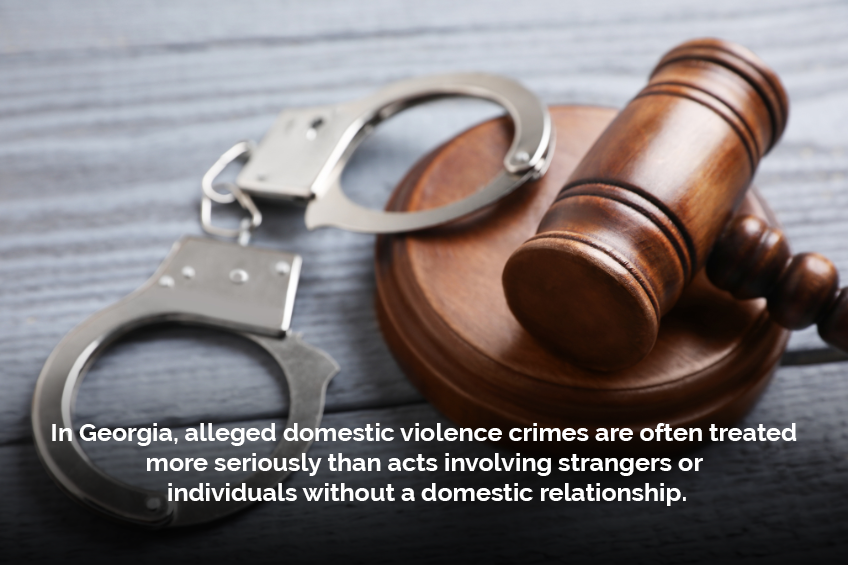
In Georgia, alleged domestic violence crimes are often treated more seriously than acts involving strangers or individuals without a domestic relationship.
In many jurisdictions, the rights of domestic battery suspects are restricted in order to protect the alleged victims.
This is because domestic violence is considered an especially heinous breach of trust within a familial or intimate relationship, and the law, understandably, seeks to shield the most vulnerable by instituting the strongest protections.
It also seeks to deter domestic violence by instituting the strictest punishments available.
A Domestic Violence Accusation Can Keep You From Your Kids
Because of these legal priorities, domestic violence cases can have serious consequences compared to other criminal charges.
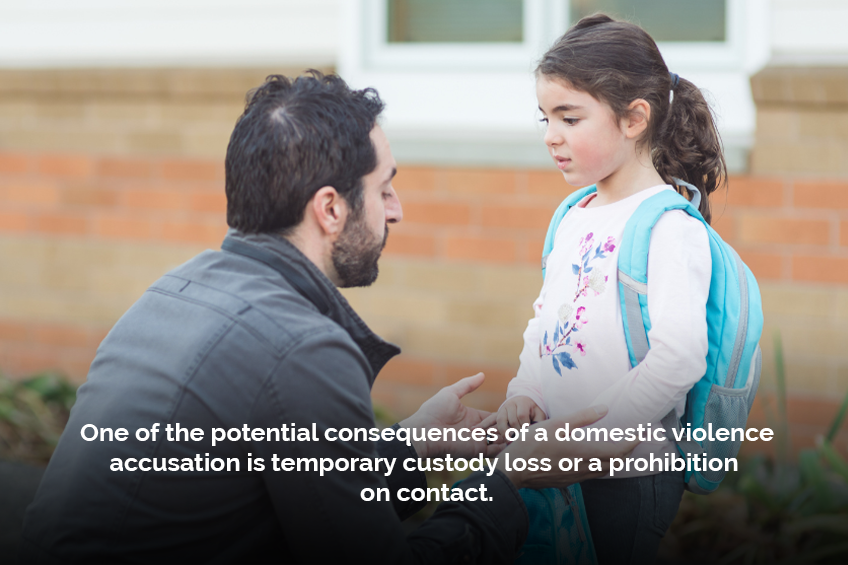
One of the potential consequences of a domestic violence accusation is temporary custody loss or a prohibition on contact.
Before a case even goes to trial, the accused may be barred from making contact with their own children.
This is because, in many cases, a restraining order or protective order may be issued for children in the interest of safeguarding their safety and well-being.
Moreover, violation of a restraining order issued for domestic violence can lead to severe consequences that can seriously harm your case.
If the accused fails to abide by the terms of the restraining order, they can face fines, jail time, and even more serious criminal charges on top of the original allegations.
And if a parent is ultimately found guilty of domestic violence, it can result in the permanent loss of child custody or visitation rights.
You Need a Strong Defense From a Cherokee County Domestic Violence Attorney
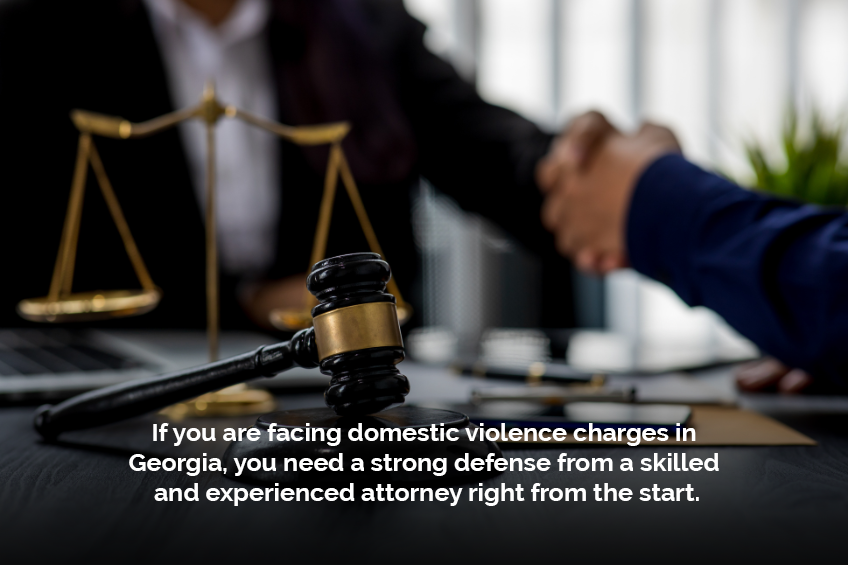
If you are facing domestic violence charges in Georgia, you need a strong defense from a skilled and experienced attorney right from the start.
The domestic violence lawyers at Speights Law will work tirelessly to protect your rights and ensure you receive a fair investigation and trial.
Their extensive knowledge of Georgia law and courtroom expertise in criminal defense will allow them to build a solid legal foundation for your case.
Our criminal defense lawyers will work to protect your rights and your freedom by:
Conducting a thorough investigation: Your attorney will review all the evidence, interview witnesses, and gather necessary information to understand the details of your case.
Challenging the evidence: We will scrutinize the evidence presented against you and find any inconsistencies or errors that could weaken the prosecution’s case.
Identifying legal flaws: We work tirelessly to determine if there are flaws in the prosecution’s case or violations of your rights that can be used to your advantage.
Negotiating on your behalf: Your attorney will engage in negotiations with the prosecution to achieve the best possible outcome for you. This may include reduced charges, alternative sentencing options, or even dismissal of your case.
Building a strong defense strategy: A compelling legal strategy tailored to the specific circumstances of your case will form the foundation for a strong defense. This may involve challenging witnesses, presenting alibi evidence, or proving self-defense, among other strategies.
Hire the Best. Call Speights Law.
When facing domestic violence charges in Georgia, it is crucial that you have a skilled domestic violence attorney by your side.
Our criminal defense lawyers are the best, and the dedicated law team at Speights Law will work diligently to defend you from charges of domestic violence.
Don’t wait – call us at 770-479-1500 for a confidential consultation now.

Archie Speights is a co-founder and lead criminal law attorney of Speights Law in Cherokee County. He is an experienced criminal defense lawyer who handles an assortment of major felony cases, including murder, sex crimes, aggravated assault, and drug crimes in the state of Georgia. To contact Archie, please visit our contact page.
